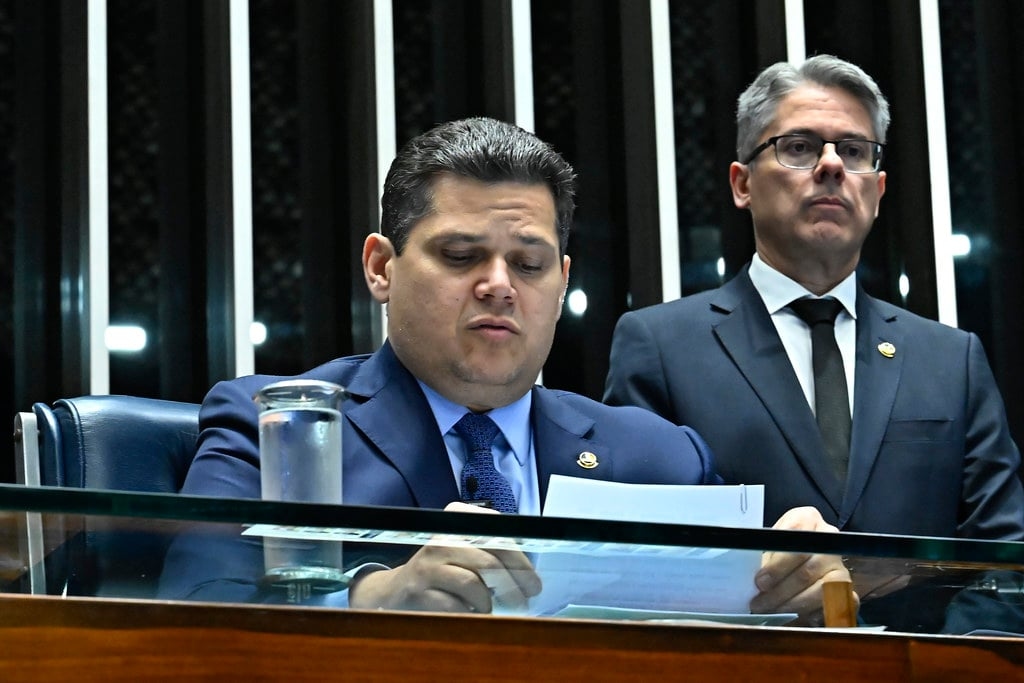Senate approves bill with tougher penalties for violent crimes; text goes to the Chamber

The Federal Senate approved on Tuesday, the 14th, a bill that toughens penalties for violent crimes. The measure also defines new crimes to strengthen mechanisms to combat gangs . The bill now awaits review by the Chamber of Deputies.
Prepared by the Public Security Committee (CSP), the project was reported by Senator Alessandro Vieira (MDB-SE) and amends the Penal Code, the Code of Criminal Procedure, the Disarmament Statute, the Heinous Crimes Law and the Drug Law.
One of the changes is the reduction of the threshold for starting a sentence in a closed regime. Currently, only those sentenced to more than eight years begin in a closed regime. With the change, sentences longer than six years will now begin in this regime.
Thus, only sentences between four and six years will be allowed to begin in the semi-open regime. In practice, this means that serious crimes, such as violent robberies or involvement in criminal organizations , will result in the convicted person serving their sentence in a more severe regime from the start.
The proposal also makes progression of the prison regime for those convicted of drug trafficking, militia, and criminal organizations conditional upon payment of the fine. The exception—included in the text by Alessandro—is for those convicted who prove they have no resources. If there is evidence indicating the convicted person's continued association with the organization, they will not be eligible for progression.
Increased penaltiesRobbery committed in association with one or more people or against the transport of valuables and cargo is now considered qualified robbery, with a penalty of six to 12 years in prison (currently the penalty is four to ten years, with the possibility of an increase of one third to one half in the case of transport of valuables or voluntary collaboration of two or more people).
Other crimes also had their sentences increased. They are:
- robbery committed with a restricted or prohibited firearm : penalty of eight to 20 years' imprisonment (currently ranging from four to ten years, increased by two-thirds when a firearm is used);
- robbery resulting in serious bodily harm : penalty of ten to 20 years' imprisonment (currently ranging from seven to 18 years);
- Extortion to force the contracting of services : increase in sentence by one-third to one-half, as already applies to extortion with a firearm. The initial sentence ranges from four to 10 years in prison;
- formation of a private militia : penalty of six to ten years' imprisonment (currently four to eight years);
- receiving stolen goods : penalty of two to six years' imprisonment (currently ranging from one to four years);
- negligent receipt (when the buyer should assume that it is the product of crime) : penalty of one to five years' imprisonment (currently it is one month to one year or a fine);
- simple homicide : sentence of eight to 20 years in prison (currently six to 20 years); and
- drug trafficking : the penalties, which vary, increase by one-sixth to two-thirds when trafficking is carried out in squares, residents' associations and public transport (currently this rule already applies to prisons, hospitals and schools, for example).
The project also defines a new type of crime, qualified resistance , to punish with imprisonment of one to three years anyone who prevents the execution of a legal act; prevents or hinders the movement of public security agents and the fulfillment of their regular duties; or who flees after practicing resistance.
Criminals who use human shields, barricades, or obstacles will face a harsher sentence than those who use explosives or fire to impede police action . The penalty in this case ranges from two to four years in prison.
The rapporteur added an exception to the crime of qualified resistance, in cases of resistance by people in political demonstrations, social, union, religious, class or professional category movements, with social or protest purposes.
CoercionThe crime of coercion during the course of the trial has been expanded to punish not only threats against authorities and involved parties, but also against witnesses and judicial collaborators. Furthermore, when this coercion occurs in cases related to crimes against sexual dignity, the penalty will be increased.
WeaponsThe Disarmament Statute introduces a new criminal offense: the use of prohibited weapons of illicit or undetermined origin, such as automatic and long-range weapons, with a sentence of ten to twenty years. The use of these weapons will also increase penalties for international arms trade and trafficking, and these crimes will now be considered heinous.
DangerousnessThe Code of Criminal Procedure defines objective criteria for assessing the dangerousness of an accused in custody hearings , such as repeated use of violence and involvement in criminal organizations. It also establishes that pretrial detention cannot be ordered solely based on the abstract gravity of the crime, but on concrete evidence of a risk to public order.
Criminal practiceThe bill expands the analysis of habitual criminality for the judge's sentencing calculation. This means the judge must consider whether the defendant demonstrates a pattern of continuous criminal activity, whether through recidivism, multiple ongoing cases, or a history of using crime as a way of life.
In these cases, the law now provides that conduct will be used as a criterion to increase the sentence, differentiating between those who committed a crime in isolation and those who make crime a habitual or professional activity .
(with information from the Senate Agency)
CartaCapital




